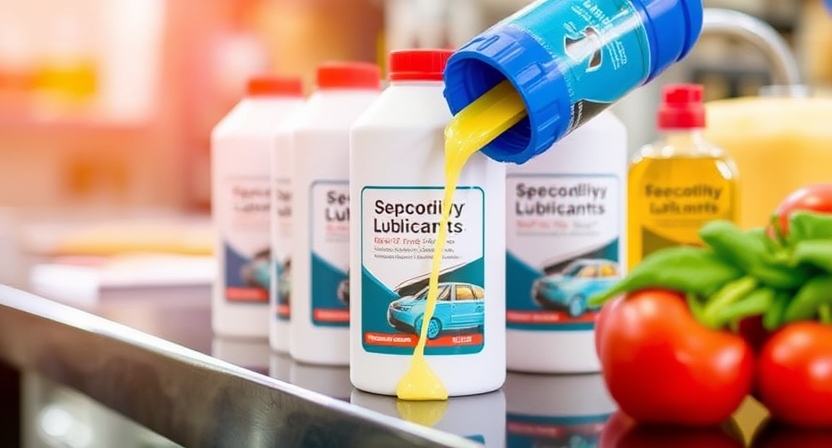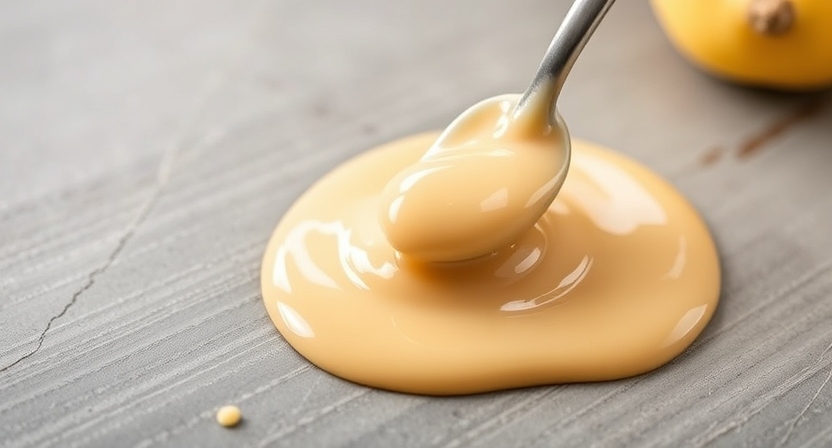
The Importance of Food-Grade and Specialty Lubricants
In industries like food processing, pharmaceuticals, and other sectors requiring stringent hygiene standards, food-grade lubricants play a crucial role in ensuring both equipment efficiency and compliance with regulations. These lubricants are specially formulated to meet the high standards for safety and performance. In this article, we’ll explore the different types of food-grade lubricants, including FDA-approved grease, food-grade oil, and halal chain oil, along with their importance in industries where cleanliness and safety are paramount.

What Are Food-Grade Lubricants?
Food-grade lubricants are oils, greases, and specialty lubricants that meet the stringent requirements for use in environments where there is a possibility of incidental food contact. These lubricants are formulated to ensure they don’t pose a health risk if they come into contact with food products.
Food-grade lubricants are widely used in the food and beverage industry, pharmaceutical manufacturing, and even cosmetic production. These lubricants are essential for maintaining the operational efficiency of machines while adhering to safety standards.

FDA Approved Grease: Meeting the Highest Safety Standards
FDA-approved grease is a critical component of food-grade lubricants. The Food and Drug Administration (FDA) provides a set of regulations that ensure lubricants used in food processing are safe for human consumption if they come into incidental contact with food.
These greases are formulated to prevent contamination and are manufactured with ingredients that are deemed safe under FDA guidelines. For example, these greases are designed to withstand high temperatures and are resistant to the harsh conditions in food manufacturing environments.
Using FDA-approved grease ensures compliance with food safety regulations and reduces the risk of foodborne illnesses caused by lubricants that may inadvertently mix with food products.
Food Grade Grease: Essential for Food Processing
Food-grade grease is specifically designed for machines that come into direct or indirect contact with food products. It is formulated to be safe, effective, and easy to use in production environments. Key features of food-grade grease include:
- Non-toxic Ingredients: These greases contain materials that are generally regarded as safe by regulatory bodies.
- Temperature Resistance: Suitable for both high and low-temperature environments.
- Water Resistance: Helps prevent the breakdown of machinery lubricants due to moisture exposure.
This type of grease is crucial for industries like dairy, meat processing, and bakery operations, where contamination risks need to be minimized.
Food Grade Oil: Safe and Effective for Sensitive Industries
Food-grade oil is used in a variety of food processing equipment, from mixers to conveyors. Like food-grade grease, food-grade oil is manufactured using non-toxic materials, ensuring that even if the oil accidentally contacts food, it poses no health risks.
There are several types of food-grade oils that can be used, including:
- Mineral Oils: Derived from refined petroleum products, mineral oils are suitable for most food applications.
- Vegetable Oils: A popular option for food-grade lubricants due to their biodegradability.
Food-grade oils provide lubrication, prevent rust, and ensure smooth operation of equipment, which is vital for maintaining product quality and production efficiency in sensitive environments.
Halal Chain Oil: Ensuring Compliance with Religious Standards
In addition to safety standards, many businesses in Muslim-majority countries, including Malaysia, seek halal chain oil. Halal chain oil complies with Islamic dietary laws and is free from ingredients derived from non-halal sources, ensuring that the lubrication process doesn’t violate religious principles.
Halal chain oils are designed for use in machinery that handles food processing and are subject to the same stringent regulations as other food-grade lubricants. These oils are safe for use in food production environments while adhering to Islamic guidelines.
Halal Grease: A Critical Component for Food Processing
Similar to halal chain oil, halal grease is specifically formulated to be compliant with Islamic law. It is designed for use in environments where food processing and handling occur. Using halal grease ensures that businesses remain compliant with religious and cultural standards while maintaining the highest level of safety in food production.
Halal greases are widely used in the food and beverage industry, especially in regions where halal certification is a critical requirement. These greases meet all safety standards and are safe for incidental food contact.
The Benefits of Using Food-Grade and Specialty Lubricants
Choosing the right food-grade lubricants comes with numerous benefits:
- Safety: Using FDA-approved grease and food-grade oil reduces the risk of food contamination.
- Compliance: These lubricants meet stringent regulatory and certification requirements, including halal certification for religious compliance.
- Equipment Efficiency: Food-grade greases and oils help maintain the efficiency and lifespan of machinery in food production.
- Environmental Friendliness: Many food-grade lubricants, especially those with vegetable-based oils, are biodegradable and environmentally friendly.
For businesses operating in the food, beverage, and pharmaceutical sectors, using the right halal grease, food-grade grease, and FDA-approved grease is critical to maintaining product safety and meeting regulatory standards.
Investing in Safe, Compliant Lubricants
In industries that require strict hygiene standards, such as food processing, the importance of using food-grade and specialty lubricants cannot be overstated. From FDA-approved grease to halal chain oils, these products ensure the safe, efficient, and compliant operation of machinery.
By choosing the right lubricants, businesses can safeguard their products, meet regulatory requirements, and boost their reputation for quality and safety. Investing in food-grade oil, food-grade grease, and halal grease is not only a legal necessity but also a commitment to producing high-quality, safe products for consumers.

